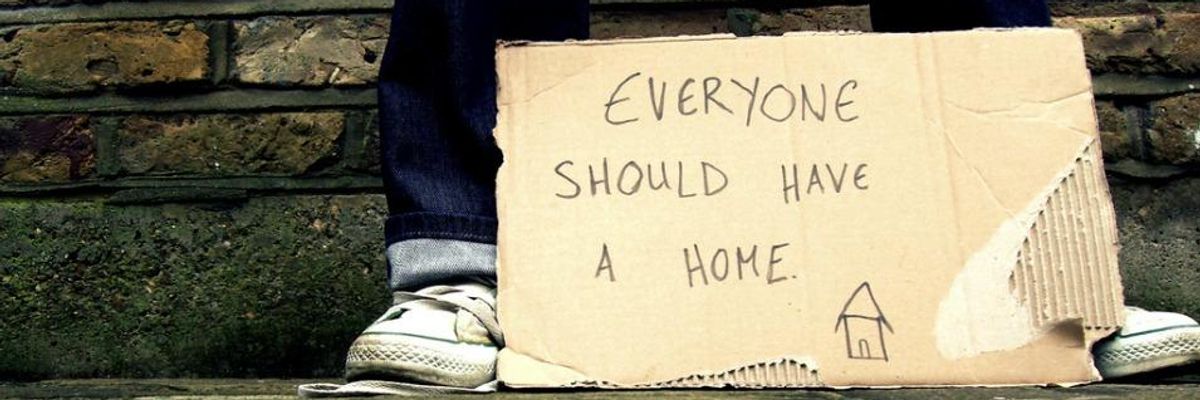I have lived in poverty both as a child and as an adult, and I can say with full confidence that it is a life-crushing force. I hated it. "Poverty" is also one of the most misunderstood labels that gets slapped onto individuals without their approval--cast upon them simultaneously by both unseen and more visible forces of society.
Poverty is a word loaded with preconceived notions, common misperceptions, and seemingly innocuous assumptions. What the word does not do is delve below its surface meaning, into the reality of poverty--a world that no one wants to live in.
Poverty is exhausting. Poverty is despair and desperation-inducing. Poverty is soul, dream and hope crushing. Poverty is like being enclosed in a prison cell with no doors or windows. It feels claustrophobic, as if there is no way out. Only the most resilient do not give up. Still, there is no guarantee that life will get better--and those in poverty know this all too well. They either become hardened or submit to fate. You don't live life, you don't thrive--you survive. You wonder if you are predestined, like a caste in another country, to live out a life destitute of fulfillment--whether financial, professional or just having a better life.
These are the very thoughts that consumed me in times of poverty. And yet, I never stopped believing that there must be a way out. The "how" and the "why" of my situation--resounding questions that were never sated--eventually fell by the wayside as I pushed towards hope. The very thing that brought despair and darkness motivated me to dig out of that prison, to fight with everything within me, to find that light that must exist outside of the walls.
In America, there is this prevalent belief that if someone just pulls herself up by her bootstraps, she can succeed. And yet, as I have learned, it is entirely possible to work your ass off and still struggle. Whether I had boots or not, whether I was barefoot, in heels, what I really learned is that resources and access to them--a network of support, and awareness of available choices--are the most influential factors in the "making it or breaking it" of life in the US. So much of this became clear to me only later--when I had the opportunity to see outside of the tiny, claustrophobic room that I had been in for years.
Living in poverty need not be a death sentence. I decided when I was 5 years old that I wanted to secure a bachelor's degree before I was married (which I did). Throughout my childhood, I had a voracious appetite for knowledge: I was constantly hungry to learn more. In high school, I decided that upon graduation I would leave the state and my family to start a new life for myself, even though it was extremely hard and I worked three jobs at one point. In college, I knew that I wanted to live and work overseas, to expand my perspective and learn more about the world. And when life challenges blindsided me as an adult (now with two degrees under my belt), I continued to learn what my options were, what resources were available to me, and to fight hard to provide the best opportunities that I can for my own children, so that they may never see themselves as "living in poverty" or not having a shot at a better life.
Enduring poverty is not the end of hope or life. The key things needed to break down the walls that imprison those within poverty are: outside influences, support networks such as friends or family, awareness of other opportunities, and access to resources.
With this combination, a new life is possible.
